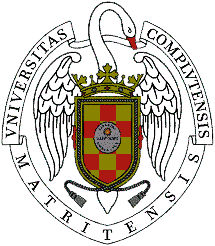The 12th International Symposium on Trends in Functional Programming (TFP’11) will be held at the Faculty of Computer Science of Complutense University of Madrid. It is colocated with the 2nd International Workshop on Foundational and Practical Aspects of Resource Analysis (FOPARA’11). This collocation could make such a gathering a very interesting event and will allow researchers from the two communities to exchange ideas.
Symposium organizer: Ricardo Peña (Computing Science Department, Complutense University of Madrid).
Symposium Objectives
The symposium is an international forum for researchers with interests in all aspects of functional programming, taking a broad view of current and future trends in the area of functional programming. It aspires to be a lively environment for presenting the latest research results, and other contributions (see below), described in draft papers submitted prior to the symposium. A formal post-symposium refereeing process then selects a subset of the articles presented at the symposium and submitted for formal publication, as a Springer Lecture Notes in Computer Science volume, as they were for the TFP 2010 selected papers.
The TFP symposium is the heir of the successful series of Scottish Functional Programming Workshops. Previous TFP symposia were held in Edinburgh (Scotland) in 2003, in Munich (Germany) in 2004, in Tallinn (Estonia) in 2005, in Nottingham (UK) in 2006, in New York (USA) in 2007, in Nijmegen (The Netherlands) in 2008, in Komarno (Slovakia) in 2009, and in Oklahoma (USA) in 2010. For further general information about TFP please see the TFP homepage .
Scope of the Symposium
The symposium recognizes that new trends may arise through various routes. As part of the Symposium’s focus on trends we therefore identify the following five article categories. High-quality articles are solicited in any of these categories:
| Research Articles: |
leading-edge, previously unpublished research work |
| Position Articles: |
on what new trends should or should not be |
| Project Articles: |
descriptions of recently started new projects |
| Evaluation Articles: |
what lessons can be drawn from a finished project |
| Overview Articles: |
summarizing work with respect to a trendy subject |
Articles must be original and not submitted for simultaneous publication to any other forum. They may consider any aspect of functional programming: theoretical, implementation-oriented, or more experience-oriented. Applications of functional programming techniques to other languages are also within the scope of the symposium.
Articles on the following subject areas are particularly welcome:
- Dependently typed functional programming
- Validation and verification of functional programs
- Debugging for functional languages
- Functional programming in different application areas: security, mobility, telecommunications applications, embedded systems, global computing, grids, etc.
- Functional languages for reasoning about imperative/object-oriented programs
- Interoperability with imperative programming languages
- Novel memory management techniques
- Program transformation techniques
- Empirical performance studies
- Abstract/virtual machines and compilers for functional languages
- New implementation strategies
- Any new emerging trend in the functional programming area
If you are in doubt on whether your article is within the scope of TFP, please contact the TFP 2011 program chair, Ricardo Peña, at tfp2011 at easychair.org.
Best Student Paper Award
TFP traditionally pays special attention to research students, acknowledging that students are almost by definition part of new subject trends. A student paper is one for which the authors state that the paper is mainly the work of students, the students are listed as first authors, and a student would present the paper. A prize for the best student paper is awarded each year.
Submissions and Draft Proceedings
Acceptance of articles for presentation at the symposium is based on a lightweight peer review process of extended abstracts (6 to 10 pages in length) or full papers (16 pages). Accepted abstracts are to be completed to full papers before the symposium for publication in the draft proceedings.
The submission must clearly indicate which category it belongs to: research, position, project, evaluation, or overview paper. It should also indicate whether the main author or authors are research students. Formatting details and submission procedures will be posted on this site as the submission deadline is approaching.



